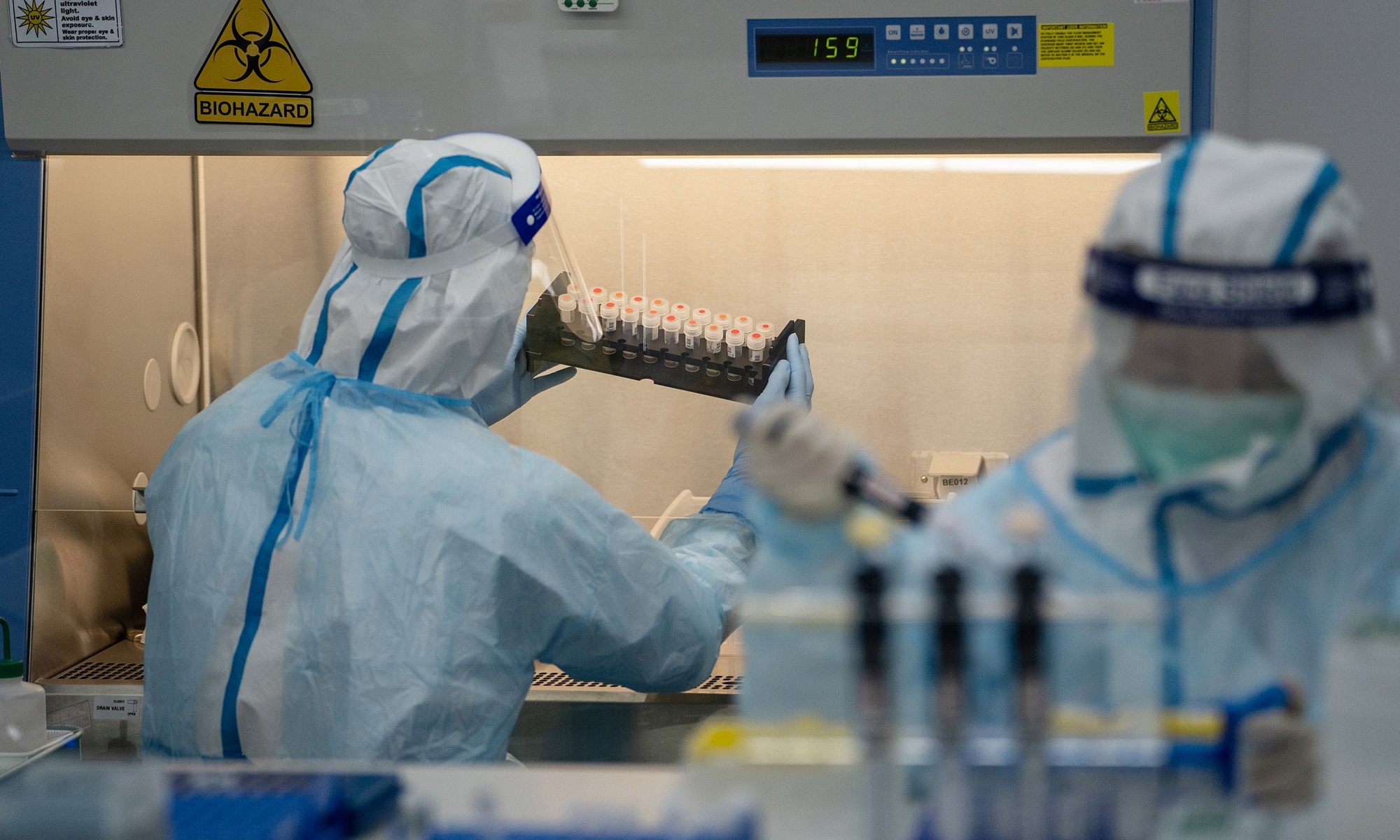
(File photo: VCG)
China’s Guangdong Provincial Center for Disease Control and Prevention (Guangdong CDC) detected the B.1.525 COVID-19 variant identified in Nigeria from nasopharyngeal swabs of two imported COVID-19 cases for the first time on Friday, and the virus isolation is still in progress, according to the announcement released on its official website on Sunday.
The two cases, both asymptomatic COVID-19 infected patients, were discovered in closed-loop management and reported as asymptomatic infections on February 21 and 22 respectively. They are still under intensive medical observation in the hospital.
On March 5, Guangdong CDC received nasopharyngeal swabs from Guangzhou, and immediately began virus isolation and genome sequencing analysis.
On Friday morning, gene sequencing analysis of the original sample indicated that it was a mutated strain, found in Nigeria.
According to the announcement, this mutated strain is currently circulating in 26 countries. It has been reported that the mutation makes the virus more transmissible, and is prone to cause antibody neutralization and escape from antibodies, possibly leading to re-infection in patients who had been infected with COVID-19.
This is the third COVID-19 mutation detected by Guangdong CDC since the B.1.1.7 variant was detected in the throat swab sample of a confirmed imported COVID-19 case from the UK on January 2, and the variant 501Y.V2 found in South Africa was isolated from the throat swab of a South African case imported from abroad on January 6.
The Guangdong CDC reminded citizens to adhere to good personal hygiene practices, and keep washing hands frequently, wearing masks, maintaining a safe distance of one-meter, and frequent ventilation.
All of the variants were found by retrospective gene sequencing analysis on imported cases from abroad. These cases can be caught by the Guangdong Province’s acute disease surveillance system, and a timely inclusion in the closed-loop management, thus causing minimal risk of community infection.
The center will continue to strengthen the monitoring and research of COVID-19 mutated strains, do a good job in the tracing of imported cases and monitoring virus mutations, closely tracking the evaluation of the immune protection effects of the COVID-19 vaccine on the mutated strains, and further implement various prevention and control measures to ensure that the related mutated strains do not cause subsequent transmission in the province.


